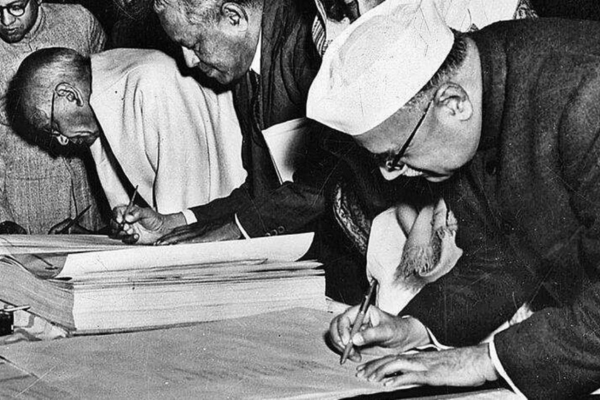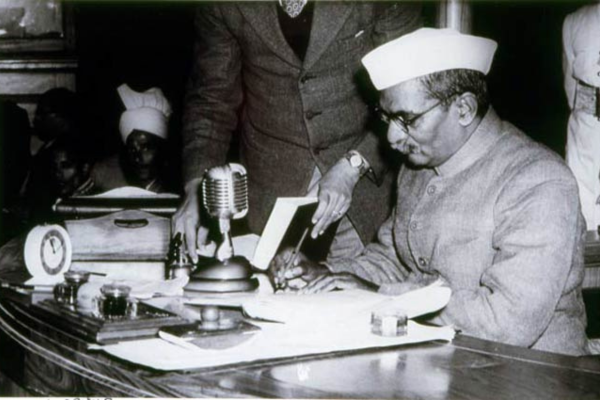- Home
- About
- Knowledge Center
- Legislative Landscape
- Resources
- #TOGETHERFORBHARA


The Constitution of Bharat, is a document that outlines the fundamental principles and laws of the country. The journey towards its creation was a long and arduous one, marked by political and social upheaval, as well as moments of triumph and unity.
The idea of a Constitution for Bharat can be traced back to the late 19th and early 20th centuries, when the country was still under British colonial rule. Bharatiya leaders such as Mahatma Gandhi and Jawaharlal Nehru, along with other members of the Indian National Congress, began to call for greater autonomy and self-government for Bharat. This movement eventually led to the formation of the Constituent Assembly in 1946, tasked with drafting a new Constitution for the country.
The Constituent Assembly was able to successfully draft the Constitution, which was adopted on 26th November 1949. The Constitution was a remarkable achievement, as it was the first time in Bharatiya history that a document had been created that outlined the rights and duties of citizens, as well as the structure and powers of the government.
One of the most important features of the Constitution is its secular nature, which ensures that the government does not discriminate against any particular religious group. Additionally, the Constitution also guarantees the rights of individuals, including freedom of speech, religion, and assembly.
The Constitution also established a federal system of government, with powers divided between the central government and the states. This system has helped to ensure that the country remains united, even as different regions have their own unique cultures and languages.
Another significant feature of the Constitution is its emphasis on social justice. The Constitution includes provisions for the protection of the rights of marginalised groups, such as Dalits and tribals, and it also establishes a system of reservation to ensure that these groups are represented in government.
The journey of Bharat’s Constitution was not an easy one, but it was ultimately a successful one. The Constitution has served as a foundation for the development of Bharat as a sovereign and democratic nation, and has helped to ensure that the rights and freedoms of all citizens are protected. Today, it remains a source of inspiration for people all over the world who are striving for freedom and equality.